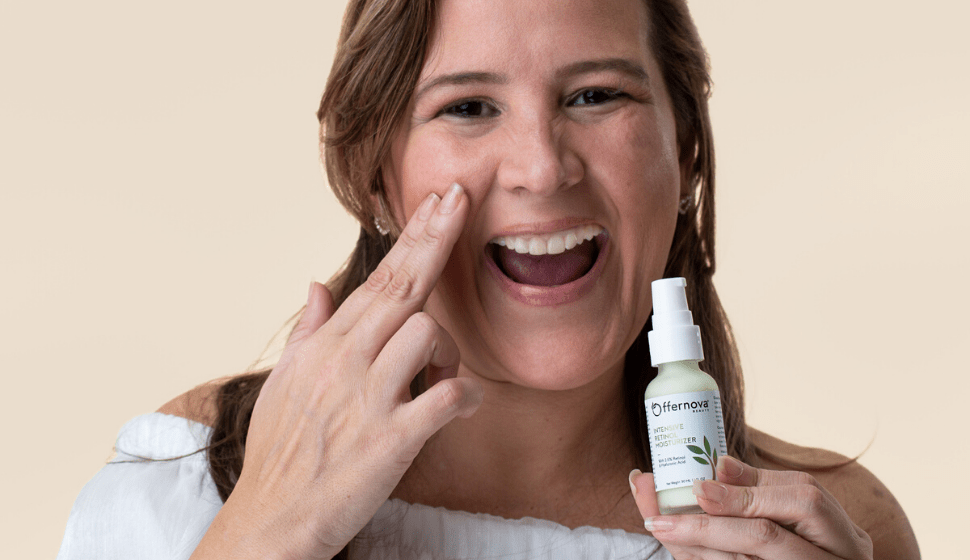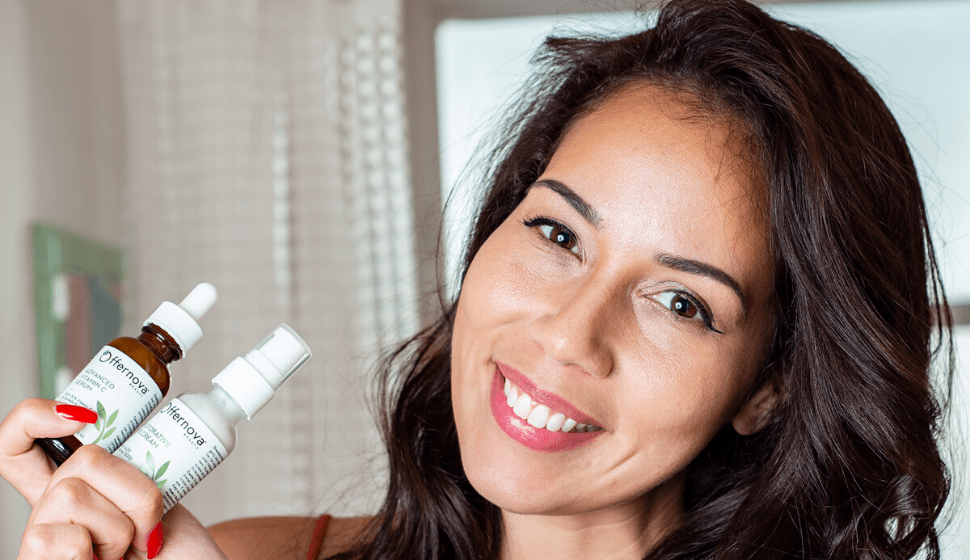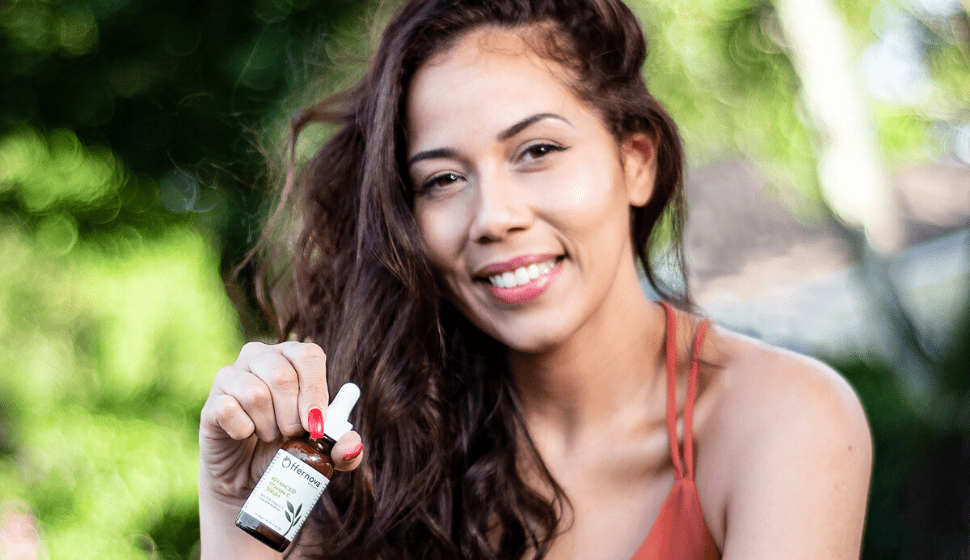You’ve probably heard about the magic of retinol, and it’s true. A high-quality retinol moisturizer may be one of the best anti-aging products to add to your skincare regimen. Let’s take a look at the retinol benefits that make this ingredient a powerful skincare ally.
10 Benefits of Retinol
#1 It diminishes visible signs of aging
Retinol is a form of vitamin A that stimulates collagen to reduce wrinkles and fine lines, as well as sagging skin due to a loss of firmness. Studies have shown anti-aging effects appear within just 4 weeks of using retinol, with further improvements apparent with continued use.
#2 It eliminates dead skin cells
Retinoid treatments (topical vitamin A) like Retinol increase skin cell renewal, meaning dead skin cells are eliminated quicker to make way for newer skin underneath. This makes your complexion look brighter, fresher, and more youthful.
#3 It’s a potent antioxidant
Retinol acts as an antioxidant to fight early signs of aging caused by environmental factors, such as pollution. Luckily, using antioxidants helps your skin to recover from the damage that external aggressors cause to healthy skin cells.
#4 It reduces the appearance of pores
By increasing skin cell turnover, retinol unclogs pores, making them appear smaller. While pore size is based on genetics, a clinical study found that both retinol and its prescription version, Tretinoin, were effective in shrinking pore size.
#5 It improves skin hydration levels
All skin types, especially dry skin, need a burst of daily moisture. The good news is that a retinol product is often paired with other essential ingredients, such as hyaluronic acid, to boost hydration. Offernova Intensive Retinol Moisturizer is one way of incorporating this active ingredient into your skin care routine.
#6 It helps to heal sun damage
If you spend too much time sunbathing, the chances are that your skin may be suffering from sun spots or other forms of sun damage. Using retinol reduces uneven skin tone and pigmentation issues by increasing collagen production and skin cell turnover.
#7 It regulates sebum production
Did you know that retinol works wonders on very oily skin? That’s because retinol helps to regulate sebum production and repair the skin’s natural barrier. Those with oilier skin types also tend to tolerate retinol best, with fewer side effects.
#8 It corrects acne spots
Prescription strength retinol is commonly used to treat acne. However, regular topical retinol for acne also works by removing dead skin cells – a contributing factor of clogged pores and blemishes. By clearing spots, retinol may also aid the fading of acne scars.
#9 It improves skin texture
Retinol enhances skin texture and tone by actively treating wrinkles, scarring, pore size, and pigmentation issues. Retinol provides an exfoliating effect by increasing skin cell renewal time, so newer skin cells replace dead skin cells much quicker. The result is a smoother, brighter, more youthful appearance!
#10 It’s easy to use
Retinol is best applied at night, using a pea sized amount on clean skin (avoiding the sensitive eye area). If you’re new to retinol, or have sensitive skin, apply once a week to start with to understand tolerance. Some users notice slight redness or dryness after usage, but these tend to subside with continued use.
As retinol can make your skin more sensitive to the sun during the first few weeks, use sunscreen before exposure to direct sunlight.
Tips for Retinol Initiation
Ready to get started using retinol? Here are some things to keep in mind.
1. Start Gradually
Especially for those with sensitive skin, it’s best to begin gradually to avoid the side effects of retinol, which typically include irritation and dry skin. We recommend starting with a pea-sized amount once or twice per week and gradually working up to more regular use.
You may also want to start with a gentler over-the-counter version for several months (yes, months!) before graduating to prescription-strength retinol for acne if that’s your goal.
2. Remember Your Sunscreen
You already know you should be wearing SPF every day, but remembering to put on sunscreen is even more critical when using retinol products. Retinoids cause extra sensitivity to the sun, so be sure to apply SPF in the morning to avoid sunburn and discoloration.
3. Apply at Night
Lastly, always apply retinol during your night care routine, as it makes your skin more sensitive to sunlight. At the same time, it will help the natural regenerative process of your skin that happens while you sleep.
Understanding Your Skin
Retinol’s unmatched mix of anti-aging and acne-treating power makes it an ideal ingredient for all ages and most skin types. Looking to take advantage of the retinol benefits we mentioned? Take our skin quiz before purchasing to make sure you understand your unique needs.



